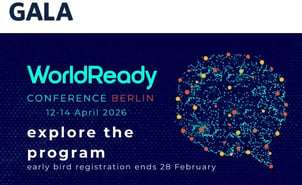In March of 2020, we published a blog post offering advice on how to improve the diversity and inclusion of your online events. While it was still early days in the pandemic and the true impact of regional lockdowns was yet to be seen, it was already clear that there was a dramatic change in how events were planned, hosted, and attended.
Now, over a year later, we’ve had time to see this impact unfold. Have event planners risen to the challenge and ensured their events are as diverse and inclusive as possible or have things taken a turn for the worse as technology and virtual events reinforce traditional barriers and exclusions? Furthermore, as vaccination programs progress and society opens up, will events return to their pre-pandemic state, or have in-person events disappeared for good?
In this article, we’ll examine a few key lessons that we’ve learned about inclusivity for online events as a result of the COVID-19 pandemic.
Diversity remains imperative
Before looking at lessons on how to maximise diversity and inclusion for online events, it’s worth revisiting just why boosting diversity in events continues is so beneficial for event organisers and managers.
On the one hand, diversity is an ethical obligation. This is self-evident, as excluding someone from attendance – or from being able to enjoy the same quality of experience – just because they have a different cultural background or speak a different language, is not exactly fair on them and does more harm than good.
But there’s a more tangible case for diversity – whether in the workplace, user testing for a product or application, or event attendance and participation. Diverse opinions and backgrounds lead to better ideas, less implicit bias, and a more accurate representation of the way society actually is. For a business, this means a better understanding of the social, historical, and cultural context within which they operate – leading to increased capacity to meet genuine needs and succeed in the long term.
Key benefits of diversity and inclusion in online events include: increased attendance, more insightful content, better engagement, and an overall bigger social footprint that can bolster future events.
Now let’s dive into some practical lessons we’ve learned since publishing our blog post last year.
Removing language barriers is just as important
Catering to different languages was essential then, and it is essential now. Even for bilingual speakers and attendees, being able to receive content in one’s mother tongue makes a massive difference in terms of engagement, comprehension, and the overall event experience.
When it comes to running a virtual event, the stakes are that much higher: your attendees are more likely to speak a variety of languages, as they can stream and broadcast content from anywhere with an internet connection.
With technology being an integral part of running an online event, there’s also no excuse for neglecting these diverse linguistic needs. Interpreting solutions are easy to come by, such as our platform, and are extremely cost-effective considering the positive impact they can make for attendees, speakers, and event managers.
Improving access for people with health conditions or impairments
While language interpretation is a good baseline for catering to diversity in an online event, an inclusive event should cater to attendees with more specialised needs: such as those with visual or hearing impairments. Improving accessibility for online events is simple, as long as it’s not an afterthought.
When planning the event – from briefing speakers to designing slides, to selecting your software platform and technology partners – give a thought to those with impaired sight or hearing.
Ensure colour contrasts are suitable for the colour-blind; encourage speakers to be descriptive in their language; offer live captions and/or sign language; and provide the slides for download or ahead of time.
By informing attendees of your accessibility measures ahead of time, you’ll maximise attendance and attract people who aren’t used to such care and consideration from other event organisers.
You can even go one step further to ask prospective attendees about their accessibility needs. Such initiative will help you provide the best possible event experience while showcasing genuine care and consideration from your brand.
Cater for different digital access and skills
Remote working highlighted just how much many of us rely on technology to go about our daily lives. But another key learning is that we don’t all have the same level of technological access from our homes. The same is true for attendees of online events. While some may have lightning-fast fiber, others may have slower connections that struggle under high bandwidth. To accommodate all your attendees, consider providing several channels or options that require less bandwidth to stream.
Digital literacy is another factor to consider. If your event is fairly complex in terms of features, platforms, and interactivity, provide attendees with educational materials that can help them all get the most from the experience. And for those who can’t make it on the actual day, consider making some or all sessions available on-demand in the days or months following.
Take an authentic, human-centric approach
The pandemic has taken its toll on everyone: mental, physical, and emotional health are strained for many. When running an online event, it’ll make a big difference for all involved if it feels authentically human and helps people foster genuine connections with one another. This spans everything from your messaging and content, as well as giving attendees opportunities to meet, engage and connect. For example, you could offer breakaway rooms or an event chat for people to take a break from speaker sessions and enjoy some light-hearted banter. Visibly encouraging diversity and inclusion is the best way to make your online event authentically human.
At Interprefy, we can help you make your online events more diverse, inclusive, and engaging.
Our cloud-based interpreting platform for online, hybrid, and on-site events ensures attendees from around the world can enjoy the same high-quality experience, no matter what language they speak.
To learn more about our platform and what it can do for your organisation, book a 15-minute call with a member of the team:





 More download links
More download links



